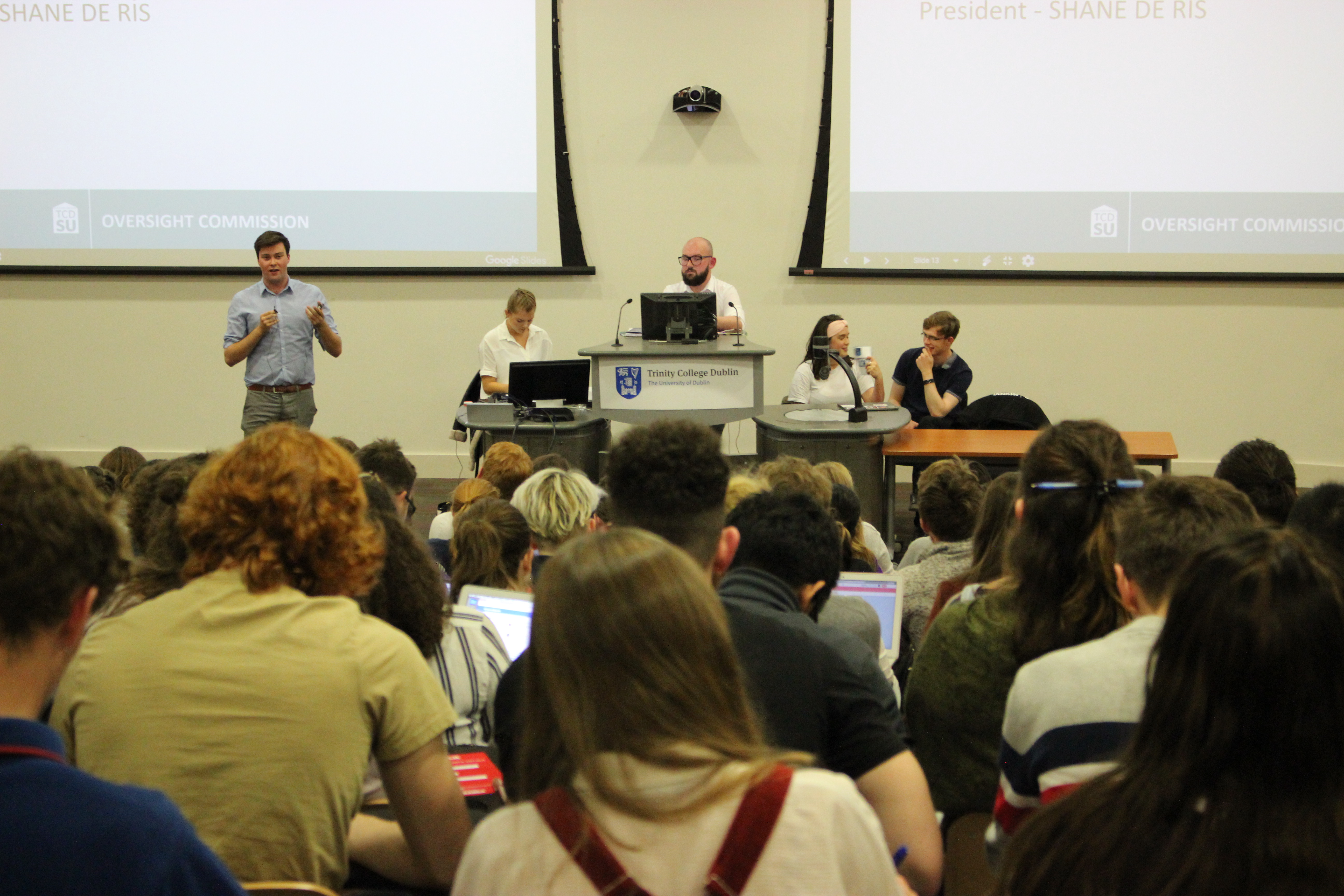The Academic Senate has been temporarily cut from the Trinity College Dublin Students’ Union (TCDSU) governance structure this year following concern it was not hitting the mark in handling academic issues.
Following a two-year trial period, the Academic Senate is to take a break from its role as a forum for students to discuss academic affairs within College. Speaking to Trinity News, TCDSU Education Officer Niamh McCay explained she decided against facilitating Academic Senate this year on the basis that it “didn’t achieve what it set out to achieve by [McCay’s] standards” and that students who took part “really didn’t walk away any better versed on academic issues”. Instead, she said that the Senate “became another place where students could voice their local issues”. She added that there already exists “a lot of different avenues through which students can bring their academic issues to the table”.
The Academic Senate was introduced in 2017 by Dale Whelehan, half way through his term as Education Officer. It ran for a trial period of two full years during the 2017/18 and 2018/19 academic years. Once its trial period had ended, it was up to McCay as then-incoming Education Officer to either make the Academic Senate a permanent fixture by enshrining it in the union’s constitution, or to scrap it.
However, McCay has told Trinity News that she has opted for a third option, deciding to “give it a break” this year, with the intention of facilitating its return next year. McCay, who served on the Academic Senate last year, said that her experience was that “attendance was okay and students definitely were eager to become senators… but it just did not function how it should”, despite being “an incredible idea” in the first instance. She added: “You shouldn’t do something just because you can, you should do it because you really want to do it right.”
In the absence of Academic Senate, McCay noted that students still need a space to voice their concerns about specific issues related to their course. She is keen, however, that the SU Council does not take on this pressure, as last year some meetings ran for an excess of three hours. To this end, she has stated that she will “highly publicise the Faculty Assemblies as an open forum, town hall space where any student can call and have their local issues heard”.
Although Academic Senate will not run this year, McCay hopes that it will return next year. She intends to “bolster the Education Committee this year” in order to “use it as a platform through which we could look at Senate” so as to come up with a plan to improve Academic Senate in future years. She added that she believes there is a space for Academic Senate and “there are a certain portion of students out their who, especially in light of TEP want to be well versed in academic goings on”.
Chaired by the union’s Education Officer, the Academic Senate featured students from each of Trinity’s 24 schools, with students elected at the end of the academic year.






